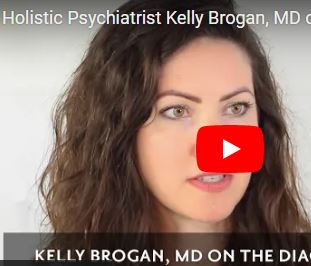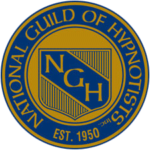
This post contains a collection of text, articles, and videos from or by Dr. Kelly Brogan MD. The links to the source articles are also shown below so you can go to her website and read the original text. Everything on this post is being shared for educational and research purposes, and for posterity, preserving and sharing information, only and is not medical advice.
Find other articles on Schizophrenia here, and all the mental health articles here.
Note her mention of: inflammation, autoimmune response, allergy to a chemical in food, gluten intolerance or celiac, both psychological and physical stressors causing inflammation, and her use of coffee enemas. Also the negatives of Rx’ed meds.
1. Quote:
Reexamining Schizophrenia as a Brain Disease
For over one hundred and fifty years, psychiatry has promoted the idea that what is called schizophrenia is a progressive, deteriorative disease of the brain, and that science is on the horizon of finally discovering the biochemical nature of this debilitating mental disorder. From the age of Kraepelin through the reign of Freud and now the neuroscience of the new psychiatry, we have been promised that a test for schizophrenia is right around the corner, a few years away, the next big breakthrough in biological psychiatry. But we have been waiting for more than a century. It is time to reevaluate the claim that schizophrenia is an organic brain disease.
Before considering the evidence regarding the nature of the problem called schizophrenia, it is important to note the weight that schizophrenia has historically—and presently—held within psychiatry. The psychiatrist Thomas Szasz called schizophrenia the “sacred symbol” of psychiatry1because those so labeled have long provided and continue to provide justification for the classification of psychiatry as a branch of medicine and for the use of coercion in psychiatric practice. While many reasonable people might doubt the existence of an entity called “seasonal affective disorder,” for example, very few reasonable people doubt the existence of the entity known as “schizophrenia.”
Even the term schizophrenia carries with it great power and influence. In the 1950s and 1960s, virtually every form of human suffering was categorized as schizophrenia, even cases without psychotic symptoms—referred to as “pseudoneurotic schizophrenia.” The term has also been used as a powerful political weapon (see my article here on the political uses of psychiatric labels). Schizophrenia has occupied, and continues to occupy, a position of great import in psychiatry, and it is frequently used to assert the supposed biological nature of the field.
What evidence is there to suggest that what we call schizophrenia is a disease of the brain? Surprisingly, very little. In a 2013 paper titled “The Myth of Schizophrenia as a Progressive Brain Disease” published in the journal Schizophrenia Bulletin, psychiatrist Robert Zipursky and colleagues reveal that what is called schizophrenia is not associated with any known brain abnormalities. The authors challenge the conventional wisdom by reviewing the MRI research and conclude that secondary factors, such as neuroleptic medication, substance abuse, and social factors, are responsible for the brain changes observed in some patients labeled schizophrenic.
Many of the early studies on brain changes in schizophrenia were flawed and incredibly overhyped—they did not control for the effects of long-term treatment with neuroleptic drugs, which have been shown themselves to cause brain shrinkage.2
Suppose future studies do indicate brain changes at a biological or chemical level that are associated with schizophrenia. Would this prove that what we call schizophrenia is a disease of the brain? Not exactly. Common sense and experimental evidence indicates that all sorts of extreme emotional states are associated with changes in the brain. Prolonged exposure to stress, such as physical trauma or emotional abuse, causes the brain to increase production of certain hormones, such as steroids. Conversely, if a person is relaxing, his steroid output may decline. In both of these instances, a person’s emotional state (and to an extent, his environment) influenced how the brain reacted, not vice versa.
The same results can be found examining brain waves. If a person is excited, the brain is likely to generate fast, low-amplitude electrical waves on an electroencephalogram (EEG). If the person then relaxes, the EEG will show alpha waves—slower, with a higher amplitude. Again, in the case of brain waves, the emotional state influenced how the brain reacted, rather than vice versa.3
However, the biopsychiatrists, without realizing it, usually just assume that a change in the brain means the existence of a disease entity called schizophrenia. This is why they search for physiological abnormalities in the brains of people so diagnosed, such as dopamine hyperactivity and ventricular enlargement. Given the vast research linking schizophrenia with early experiences and the family environment, the idea that a person’s emotional and environmental state might relay to brain changes seems plausible.
It is an unfortunate truth that many young psychiatrists today are unfamiliar with the vast literature from psychoanalytic psychiatrists on the human problem of schizophrenia, written by intellectual giants like Silvano Arieti, Harry Stack Sullivan, Theodore Lidz, and Thomas Szasz. Perhaps the most troubling aspect of the medicalization of schizophrenia is that the patient’s communications get lost in the process. The organic psychiatrist is unlikely to see the patient’s hallucinations and delusions as possessing any meaning—they are viewed as mere “symptoms” of the patient’s supposed underlying neurological disease.
I contend that what is called schizophrenia is a complex human condition that has at its locus a breakdown in interpersonal communication. The person, unable to communicate via traditional means, resorts to a metaphorical and symbolic “protolanguage,” which is to be interpreted and made sense of during analysis (Szasz, 19654). Over time, the patient’s apparently nonsensical speech and perceptual experiences begin to be understood as an expression of internal conflict. Despite common belief, many patients diagnosed as schizophrenic go on to do quite well, and a substantial minority of them regain full functioning.5
Sadly, there is no sign that the field is ready or willing to adopt a non-biological explanation of schizophrenia. There is, it seems, no room in American psychiatry for those who voice disagreement with the biological theory of schizophrenia. Loren Mosher, former chief of the schizophrenia research branch of the National Institute of Mental Health (NIMH), was fired from his post after advocating a psychosocial approach to psychosis. He remained a clinical professor of psychiatry at the University of California at San Diego until his death in 2004. Similarly, the pharmaceutical industry has no interest in repositioning schizophrenia as a psychological or psychosocial problem; antipsychotic drugs bring in $11.7 billion annually.6
Psychologists and social workers, many of whom had been steadfast proponents of psychosocial theories of mental distress, now mainly endorse the biological model of schizophrenia. The reasons for this are complicated but involve the increasing medicalization of these fields and the natural tendency to consider human experiences beyond normal appreciation as being biological aberrations rather than understandable differences.
Common misconceptions notwithstanding, the evidence is dwindling—not expanding—that schizophrenia is a brain disease of biochemical origin. However, the field of psychiatry remains so enmeshed with the pharmaceutical industry and the reductionistic biological paradigm that it refuses to realize that the emperor called schizophrenia has no clothes.
This post was originally published here on Mad in America.
Article source: https://www.kellybroganmd.com/blog/reexamining-schizophrenia-as-a-brain-disease#readfreely
2. Quote:
Autoimmune Disease – Fire in the Mind
A recent study contributes to the literature suggesting a bidrectional relationship between schizophrenia and autoimmune diseases. In a Danish cohort, individuals with schizophrenia and infectious exposures (hospitalization), the incidence of autoimmune disease was almost 3x as frequent.
- Schizophrenia likely shares underlying pathology with autoimmune disorders in the form of acute on chronic inflammation, and dysfunctional immune response.
- In addition to infection, to which patients are more susceptible in the setting of nutrient-poor diets and stress, there are other important factors that contribute to inflammation and a reactive immune system. These include vaccines, food antigens, and environmental toxins such as metals, plastics, and flame retardants.
- If we consider schizophrenia to be a manifestation of disordered immunity, we might look to lifestyle factors such as stress, exercise, diet, and a clean environment as first line treatments.
Read the abstract of this study suggesting a relationship between schizophrenia and autoimmune disease.
Article from: https://www.kellybroganmd.com/blog/schizophrenia-and-autoimmune-disease
3. Quote:
Methylation and Schizophrenia: The Role of B Vitamins
Schizophrenia is typically characterized by negative symptoms including apathy and impaired executive function while positive symptoms refer to delusions and hallucinations. Appreciating the role of B vitamins, and particularly folate, the metabolism of which is dictated by genetic variants such as MTHFR, the potential for meaningful intervention grows.
- 140 subjects were randomized to receive 400ug of B12 plus 2mg of folic acid vs placebo.
- Improvement in negative symptoms was greater in the treatment group but correlated specifically to genetic variants related to folate metabolism.
- This study may be an example of nutrigenomics or implementing therapeutic use of nutrients related to personalized need.
Read the methylation and schizophrenia study here.
Article from: https://www.kellybroganmd.com/blog/methylation-and-schizophrenia
4. Quote:
Dr. Kelly Brogan’s Jaw-Dropping Interview On Holistic Psychiatry
WE KNOW the gut-brain axis is a very real thing, but holistic psychiatrist Dr. Kelly Brogan’s interview with Adrienne Nolan-Smith of WellBe has us shook. Dr. Brogan recounts the case of a young man whose healing from chronic schizophrenia came through the removal of a common food additive from his diet. We can’t help but wonder what could be achieved if holistic psychiatry was more commonplace?
Dr. Kelly Brogan was a conventional psychiatrist for many years, and spent much of her career prescribing medications to help treat her patients’ conditions. Today, she’s a pioneer in the field of holistic psychiatry, and is one of the few known psychiatrists who takes a non-pharmaceutical approach to mental illness. How she made that transition is a fascinating story, as is her totally unique process for working with patients. Get to know a little more about her unique approach in the video above (which originally appeared on WellBe) and in the fascinating piece below…
The Personal Health Struggle That Sparked Change
As is the case with many “renegade doctors,” as she calls them, Dr. Brogan was an entirely conventional physician until a personal health issue led her to experience firsthand the limitations of what conventional medicine has to offer.
Up until that point, she was what’s called a reproductive psychiatrist, and specialized in prescribing psychiatric medications to pregnant and breastfeeding women. “That’s how much I believed in the pharmaceutical model,” she reflects.
But when she got pregnant herself, Dr. Brogan’s mindset shifted. During her pregnancy, childbirth experience, and postpartum window, she was seeing women just like her, and was still prescribing them psychiatric meds. “I began to sort of have this funny feeling that I don’t think I would want to take an antidepressant as a pregnant woman,” she remembers thinking. “That’s an inconvenient feeling.”
At that point, she wasn’t ready to come face-to-face with that feeling; she’d put so much time, money, and energy into the pharmaceutical model and the conventional approach to medicine. So she swept her discomfort under the rug.
But then another health experience shifted her outlook even further. After her child was born, she began to experience a panoply of symptoms: brain fog, memory issues, a flat mood, feelings of overwhelm, hair and skin issues. Initially, she chalked it all up to new motherhood. “We love to make excuses so we don’t actually have to address what our body is trying to tell us,” she says now, looking back.
Eventually, when she was nine months postpartum, Dr. Brogan was diagnosed with Hashimoto’s Thyroiditis. It’s an exceedingly common autoimmune condition, especially in women and in particular postpartum women. After her diagnosis, she was prescribed various medications, and that inconvenient feeling — the discomfort over prescribing to pregnant and postpartum women — crept in again. She knew she didn’t want to take a prescription for the rest of her life, and could no longer stomach the hypocrisy of that.
“You live what your patients are going through,” Dr. Brogan says. “Until you experience that yourself, you don’t really have the motivation to question what you learned.” But at that point, she had all the motivation she needed. That’s when her journey toward holistic psychiatry began.
Healing Naturally From Hashimoto’s Thyroiditis
After realizing that she didn’t want to take a prescription for her Hashimoto’s, Dr. Brogan found a naturopath in New York, Nicole Egenberger, who helped her change her diet and incorporate supplements. Dr. Brogan, as a science-minded, quantifiable-data person, tracked and monitored her progress by looking at the numbers. She began with antibodies in the high 2000s, and a TSH of 20, and watched as that resolved in the matter of one year. “I said, ‘well, wow,’” Dr. Brogan remembers.
The resounding success of this natural treatment made Dr. Brogan reflect on her medical training. Throughout her entire Ivy League education, she’d never been taught that diet matters. “The average medical student doesn’t have more than one hour of nutrition education,” she says. “It’s like, ‘By the way, if your patient’s drinking like a 32-ounce Pepsi every day, probably just tell them they shouldn’t do that.’ That’s literally the extent of it.”
Nor did she ever learn that autoimmune conditions like her own, and other chronic conditions, could be put into remission through lifestyle change. It was always all about the medications.
At this point, she became furious. She felt absolutely enraged at how much she’d invested and sacrificed to learn only part of the story of human health.
Finding A New Path With Holistic Psychiatry
In the years that followed, Dr. Brogan made it her mission to learn the rest of that story. She spent countless hours reading studies and primary papers on PubMed, unpacking everything that she’d assumed to be true.
She looked into all of the pharmaceuticals she’d thought were innocuous, that she’d assumed didn’t have a dark side, that she’d prescribed to patients for years: birth control, statins, antidepressants, antibiotics, acid blockers. “I went in and investigated it and what I found was really shocking at worst, and interesting at best,” she says.
But she didn’t just take this new information and get angry. What she learned through her extensive research became the foundation of a new way to practice medicine. It became the backbone of her holistic psychiatry practice.
The Pushback Against Holistic Psychiatry
It didn’t surprise Dr. Brogan that she’s received a lot of pushback from the medical community for her non-pharmaceutical approach to psychiatry. In the world of conventional psychiatric medicine, there’s a clear line in the sand that all practitioners are meant to respect, a line that divides conditions that can be treated through holistic methods and lifestyle change from conditions that must be treated by pharmaceuticals. According to this belief, there are certain severe psychiatric conditions for which there’s nothing you can do, lifestyle-wise, to alleviate symptoms. They believe drugs are the only answer.
Many times throughout her career, Dr. Brogan witnessed the strength of this belief. She saw patients coming to doctors with suggestions or ideas of things they might do, lifestyle changes they might make, to help them get better. Again and again, the response she saw was along the lines of: “These are the hallowed walls of legitimate medicine, please take your concerns elsewhere.” Her mentor described this mentality as similar to a religion, and she agrees. There was no room for conversation or discussion, only accepted dogma.
Dr. Brogan approach of holistic psychiatry without pharmaceuticals for any psychiatric condition —no matter how severe — challenges this dogma. Still, the medical community remains firm that for some mental illness, only medication will work.
Dr. Brogan is on a mission to prove that this belief isn’t correct. She’s dedicated her career to showcasing and publishing cases in which lifestyle or diet changes have been able to treat severe mental illness. Her holistic psychiatry practice includes a team of 15 clinical volunteers devoted to publishing these cases: 5 have been published so far, and another is underway. Their goal is to put it in black and white that these severe mental illnesses are amenable to lifestyle changes, that powerful drugs aren’t the only answer — and may even be a damaging one.
An Incredible Story Of Schizophrenia Cured By Holistic Psychiatry
One of the cases that Dr. Brogan and her team are publishing centers around a twenty-something man in Scotland with chronic schizophrenia. His condition had become extremely dire, and he was put on medications reserved for the severely ill — the kind of medications that often require repeated blood draws because they’re so toxic that they could induce a medical crisis. His quality of life had gotten so poor that his mom considered bringing him to Belgium for euthanasia. They were desperate, they’d tried everything.
As a last-ditch effort, they participated in an online program that Dr. Brogan offers, which basically replicates what she does in her clinical practice. Dr. Brogan emphasizes that they completed the program entirely on their own, that she never met them in person. Within two weeks, the young man had gone from completely nonfunctional to seeking employment.
Dr. Brogan tells WellBe that she has many cases like this, and that in most of them, typically the first thing she thinks is that it was a simple issue of a harmful reaction to a certain food item or environmental toxin, something like gluten enteropathy (aka celiac disease). In the case of the young man in Scotland, it was a brain allergy to a very specific kind of protein found in commonly processed foods. “That’s all it took,” Dr. Brogan marvels.
In the case of this particular patient, and many others, Dr. Brogan finds that she’s often the last stop, and she wishes she were more often the first one — especially because the fix can commonly be quite simple. People tend to only turn to holistic psychiatry when conventional medicine has failed them. As Dr. Brogan describes it: “People come to me when they’re headed to state hospital, when they’ve been on five meds for 25 years, when they have done electroconvulsive therapy, when nothing has worked and they’re cycling through psychosis and mania or they’re chronically suicidal, they’ve had multiple attempts.”
The Role Of Emotions In Holistic Psychiatry
While many of Dr. Brogan’s patients, like the case described above, can be treated through dietary changes, emotions also play a large role in her approach. “The body doesn’t discriminate,” she explains. “So your psychological stress, your emotionally suppressed arenas, your deeper spiritual questions and your physical exposures — artificial foods and toxicant exposures and lack of sunlight, lack of movement — it all registers the same. The body doesn’t actually know.”
So whether it’s a psychosocial stress or a physical stressor, the body will read it the same way on a cytokine level (cytokines, in case you missed our primer on chronic inflammation, are the proteins that trigger an inflammatory response). But in conventional medicine, doctors view the mental and the physical as two entirely separate entities, which have virtually no impact on one another. As a holistic psychiatrist, Dr. Brogan acknowledges the intimate connection, and much of her practice involves doing detective work and methodical process of elimination to find the root cause, whether it’s emotional, psychological, social, environmental, or physical.
To do this, Dr. Brogan takes a logical triage approach. “I do think like Maslow’s hierarchy, where there’s an order of operations,” she says. First, she goes for the low-hanging fruit of the physical realm, usually beginning with diet. She looks to the most common culprits: gluten or dairy issues, too much caffeine, alcohol. If none of those do the trick, she moves to emotional work: relationships, mental and emotional baseline, needs that aren’t being met.
Dr. Brogan uses this same approach no matter the severity or type of mental illness: from psychosis right on down to slight depression. A fundamental tenet of this approach involves taking all her patients off of their medications — meds that, as she points out, will often induce chronically what people are looking to cure acutely — because until a person is off of these medications, you can’t begin the detective work of finding the root cause.
What A “Detox” Means In Holistic Psychiatry
Another central tenet of Dr. Brogan’s approach is the notion of a detox. She means this in a specific, holistic way — not a “oh I drank too much in December so I’m doing sober January” kind of detox.
As she describes it, her type of detox “is not necessarily a correction, it’s an alignment with an awareness of what the body wants and needs to thrive.” She drives home the point with an analogy: if a plant was kept in the corner with no sunlight, and watered with toilet water, nobody would be surprised if it withered and died. But when it comes to our own bodies, we don’t have the same awareness of how our environment and diet affect our health.
Brogan explains that we must learn to read our body’s language, that symptoms aren’t mistakes, but rather our bodies telling us something. She says that the hundreds of thousands of chemicals in our environment take their toll on us, and eventually, “the natural world and your physical body are going to gently, gently remind you. Tap on your shoulder until they start screaming.”
A detox, then, is one of her tools for helping people understand precisely what their body is screaming about. To Dr. Brogan, the detox is all about the synthetic compounds we’re exposed to: pre-chlorides from your dry cleaner, for instance — and, of course, medications. As she points out, you can’t patent a natural chemical, so every single prescription medication (which you can patent and therefore make quite a bit of money selling) is a chemical your body didn’t evolve to recognize.
One of Dr. Brogan’s detox tools is the coffee enema, a buzzy concept in the wellness space that tends to raise eyebrows. She was skeptical herself at first, but her mentor showed her a paper from the New England Journal of Medicine that opened her eyes: in the study, schizophrenic patients were hospitalized for two weeks, with no interventions except for coffee enemas daily, and were discharged symptom-free. The enema, as Dr. Brogan explains, is a method of relieving the liver of its burden to process toxins, and it’s doubly valuable because it’s self-administered.
Other detox practices that she recommends for helping your body to cope with environmental toxins include using a rebounder, dry brushing, saunas, and Ayurvedic practices. Detoxing is not about losing weight or punishing yourself for indulgence: it’s about, as Dr. Brogan puts it, “activating your own internal healing kit.”
Dr. Brogan’s Journey + Vision For The Future Of Holistic Psychiatry
After years of subscribing to the conventional approach to medicine and prescribing psychiatric medications to pregnant and breastfeeding women, Dr. Kelly Brogan had her own run-up against the health system’s limitations when she was diagnosed with Hashimoto’s thyroiditis. This experience led her to dive deep into research that challenged all of her medical training, and everything she’d assumed to be true about treating psychiatric illness.
From this research, she built the foundation for her holistic psychiatry practice. Underlying Dr. Brogan’s approach is the belief that medication is never the answer, and that any psychiatric condition — even the most severe — can be treated through lifestyle changes.
She knows that this rubs many in the medical community the wrong way, and she’s up against a lot of firmly held beliefs, but she has hope that through her research and results, the medical community will recognize that holistic psychiatry isn’t some fringe, woo-woo thing, but an effective approach that allows patients to move away from harmful and addictive medications.
Watch WellBe’s full interview with Dr. Kelly Brogan to hear the miraculous story of a woman who underwent electroconvulsive treatment for a bipolar diagnosis that turned out to just be gluten intolerance, the role subsidies play in conventional psychiatric treatment, the shocking/terrifying side effects of common psychiatric meds, and why she believes every adult should take one month to reflect on their life, their health, and their needs.
The Chalkboard Mag and its materials are not intended to treat, diagnose, cure or prevent any disease. All material on The Chalkboard Mag is provided for educational purposes only. Always seek the advice of your physician or another qualified healthcare provider for any questions you have regarding a medical condition, and before undertaking any diet, exercise or other health-related programs.
Article source: https://thechalkboardmag.com/kelly-brogan-holistic-psychiatry/
This is the YouTube video found in the article above
Publication:
Schizophrenia Symptom Alleviation Through Implementation of a Lifestyle Intervention Program
Kelly Brogan, Alyssa Jarvi, Hannah Klopf, Tiffany Turner PMID: 32822331
Abstract
Background: This case report illustrates the use of a lifestyle intervention program entitled “Vital Mind Reset” which led to the alleviation of disabling schizophrenic symptomology.
Summary: A 22-year-old male with onset of Tourette’s Syndrome and depression with suicidal ideation as a teenager began declining in mental vitality, resulting in the eventual diagnosis of treatment-resistant schizophrenia at the age of 17. At this time, he was admitted to an adolescent mental health ward due to delusional thinking and auditory hallucinations. Despite administration of a multitude of antipsychotic medications throughout the ensuing years, he was admitted yearly to the same hospital during the winter months until 2015. The patient began the Vital Mind Reset (VMR) program in 2017, committing to a series of lifestyle interventions which included dietary modifications, daily meditations, and detoxification practices. After completing the program, the patient experienced significantly improved quality of life, as he was once again able to leave his house. One year after completing the program, his physicians reported his schizophrenia appeared “to be in remission.” Given these results, when medication and conventional therapies gain limited progress, lifestyle interventions outlined in the VMR program should be considered, perhaps even as first-line therapy. This case defies the chronicity of severe psychiatric symptomologies such as schizophrenia and exemplifies the potential for healing and resolution of persistent psychiatric illness.
Find other publications by Dr Brogan relating to Mental Health here – Kelly Brogan
Videos
5. Videos:
Here’s another YT video featuring Dr. Brogan. It’s only a short clip from a documentary called HEAL which I do recommend watching.
The HEAL documentary can be found here
https://www.healdocumentary.com/purchase.html
Below find additional YT videos featuring Dr Brogan
Do you own yourself?







